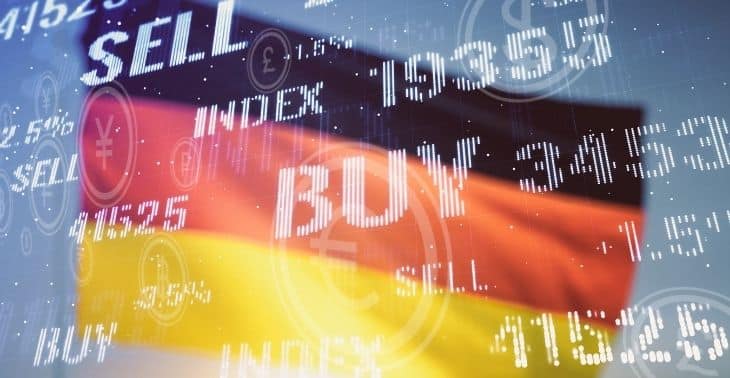Risk management and security in German forex trading

Risk management and security are the two most important aspects of German forex trading that one should not overlook. Risk management involves evaluating, monitoring, and maintaining risks associated with trading activities to ensure profitability and success. Security is also essential to protect traders from external threats such as hackers or other malicious entities. By understanding risk management and security, German traders can better manage their trades while mitigating potential losses due to unexpected outcomes. Properly implementing these measures can increase profits for those engaged in Forex trading within Germany.
Understanding Risk in Forex Trading
Risk management and security are critical components of a successful German forex trading strategy. Risk management involves creating strategies to limit risk exposure, such as diversifying investments and setting stop-losses. Security is also important to protect traders from fraud or malicious activities. In Germany, the Bundesbank regulates all financial markets, including forex trading. The regulations set out by the Bundesbank help ensure that investors have access to high-quality services with guaranteed protection against fraudulent activity and market manipulation. By understanding these key elements of risk management and security, German traders can be more confident when entering the global foreign exchange market.
Traders may use derivatives such as futures and options to mitigate market risk by establishing a price limit. It is done through hedging, which involves taking an opposite position in the same or similar asset.
Traders can manage credit risk by using a variety of methods. These include setting margin requirements, monitoring counterparty performance, and entering into derivative contracts with multiple counterparties to diversify the exposure if one party defaults. It is also important to have a formal process for assessing potential counterparty risks before entering into transactions and regularly reviewing existing ones. Additionally, traders should consider purchasing credit default swaps or other financial instruments that provide protection against non-payment or default from their counterparties. By taking these steps, traders can help protect themselves from unexpected losses due to credit risk in futures markets.
Operational risks refer to operational failures that may occur within an organization or between organizations participating in financial transactions. It includes system failure, human errors, fraud, or mismanagement which can result in financial losses directly or indirectly through reputation damage and legal costs incurred due to the litigation process. Operational risks need careful management and monitoring by traders, who must ensure effective internal processes are implemented throughout their operations.
Managing Risk in German Forex Trading
Stop-loss orders are a common strategy German forex traders use to manage risk. This type of order is designed to limit the amount of money you can lose on any single trade by automatically closing out your position when it reaches a certain price. By setting these stop-loss orders, you can limit your losses if the market moves against you.
Diversifying their portfolios is another key risk management technique many German forex traders use. It involves spreading investments across various types of assets, such as stocks, bonds, and currencies, to reduce the overall risk associated with one asset class or sector. A diversified portfolio will help mitigate potential losses due to sudden changes in particular markets and allow for greater profits from multiple sources.
Finally, using leverage wisely is essential for successful trading in Germany and elsewhere. Leverage refers to borrowed funds that amplify both gains and losses, meaning that even small swings in currency prices can lead to large profits or losses depending on how much leverage has been employed. As such, it’s important not to use too much leverage. Otherwise, one may face significant financial loss due to overexposure during market volatility or downturns.
German forex traders also use leverage, but it should be cautiously done as it simultaneously increases potential profits and risks. When using leverage, traders should adhere to strict money management rules, such as setting predetermined entry points and exit strategies ahead of time that will help mitigate any potential losses due to increased volatility caused by leverage trading.
Ensuring Security in German Forex Trading
The security of German forex trading is critical and cannot be understated. As a global financial market, the foreign exchange market deals with trillions of dollars every day, making it an attractive target for hackers and cybercriminals looking to steal funds or manipulate markets for their gain.
It makes it essential that traders in Germany take steps to protect their trading accounts from potential threats by utilizing strong encryption protocols, two-factor authentication methods, secure login forms, and other measures designed to keep user information safe. Additionally, they must employ prudent risk management practices to minimize losses due to unanticipated events such as sudden price changes or hacking attempts.
Finally, all participants in the German forex market must ensure they are dealing solely with licensed brokers who comply with stringent regulations designed to promote transparency and consumer protection. By taking these steps, German traders can enjoy greater peace of mind while participating in this exciting global financial marketplace.
Some other key measures include using strong passwords with a combination of uppercase letters, lowercase letters, numbers, and symbols; enabling two-factor authentication whenever possible; avoiding public Wi-Fi networks as they can be easily hacked; monitoring account activity for suspicious transactions or changes in personal information; setting up trade alerts in case of unexpected price movements or excessive losses/gains; managing risk by diversifying investments across different asset classes; regularly changing passwords to ensure ongoing security.
So if you are thinking to start forex trading you should be well aware of all the aspects of security and ensure you follow all the guidelines.
Regulations and Compliance in German Forex Trading
The regulatory framework for forex trading in Germany is quite extensive and complex, as the country is part of the European Union’s financial markets infrastructure. The Federal Financial Supervisory Authority (BaFin) oversees all activities related to forex trading in Germany, including market supervision and enforcement.
BaFin requires traders to register with a local branch office and obtain an authorization certificate before offering services to clients within the country. Additionally, BaFin has created several specific rules governing margin requirements, leverage limits, capital requirements, and other aspects of trading that protect the best forex broker in Germany from potential risks associated with foreign exchange transactions.
Furthermore, all German Forex brokers are subject to MiFID regulations and other international standards, such as FCMs regulated by CFTC or NFA in the US or FCA-regulated brokers in the UK, which ensures maximum security for depositors’ funds.
Regulatory bodies are essential in ensuring that the market remains safe and transparent for investors to do business. They monitor activities on the stock exchange, making sure that companies comply with all relevant regulations. It includes protecting investors from fraudulent or unethical practices and preventing insider trading.
Regulatory bodies also play an important role in setting standards for the disclosure of financial information by publicly traded companies, requiring them to provide accurate and timely reports about their performance and operations.
Furthermore, they oversee new products offered to consumers, such as derivatives or other complex investments, so that these products are not used inappropriately or unfairly sold. By providing regulation and oversight of the markets, regulatory bodies help keep them fair and ensure transparency which ultimately encourages investor confidence in the overall system.
Conclusion
The article highlighted the importance of risk management and security for German forex traders. It discussed the various regulations governing trading in Germany and some of the risks that may be encountered when trading in this country. Additionally, it outlined a number of steps that must be taken to ensure a secure environment for currency transactions. These include having an established strategy or system and understanding the impact of leverage used during trading activities.
Furthermore, proper research should be conducted into currency markets before investing. Finally, reliable customer service support is essential to any successful venture with foreign exchange markets so that issues can be quickly resolved. All these aspects are vital to maintaining security while participating in German Forex trading activities and should not be overlooked by traders looking to profit from their investments.
Harold joined our team as a reporter while still studying, a job that suited him perfectly as he always prefers working on the stock analysis. He has a passion for new technologies, economics, finance, and is always keen to learn more about the ever-changing world of journalism. Harold also likes to explore new things in his free time.









